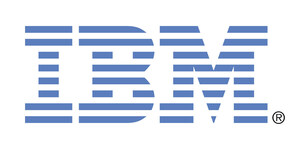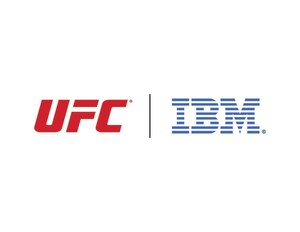IBM Global Parking Survey: Drivers Share Worldwide Parking Woes
-- 8,042 commuters in 20 cities on six continents surveyed
-- Parking elusive worldwide; Over half report abandoning search for parking spot
-- Chicago reports the least amount of tickets for illegal parking; Bangalore tops the list
-- Drivers in New Delhi, Bangalore, Nairobi and Milan argue most over parking spaces
ARMONK, N.Y., Sept. 28, 2011 /PRNewswire/ -- IBM's (NYSE: IBM) first parking survey released today found that drivers in 20 international cities face a daily struggle in finding a parking space. In the past year, nearly six out of 10 drivers have abandoned their search for a space at least once, and more than a quarter have gotten into an argument with a fellow motorist over a parking space.
(Logo: http://photos.prnewswire.com/prnh/20090416/IBMLOGO )
In addition to the typical traffic congestion caused by daily commutes and gridlock from construction and accidents, reports have estimated that over 30 percent of traffic in a city is caused by drivers searching for a parking spot. Not only do inefficient parking systems result in congestion and increased carbon emissions, they also waste commuters' time, lead to lost productivity and economic opportunities and can lead to inefficient city services.
Interestingly, IBM's global parking survey showed that drivers in both developed and emerging economies face many of the same parking frustrations, regardless of where they live or their ranking in the recently released Commuter Pain Index. Drivers in Nairobi averaged 31.7 minutes in their longest search for a parking spot, and commuters in Bangalore, Beijing, Buenos Aires, Madrid, Mexico City, Paris and Shenzhen all reported means significantly above the worldwide average. Seventeen percent of drivers in Milan and Beijing and 16 percent of drivers in Madrid and Shenzhen spent 31 to 40 minutes looking for parking.
In fact, over half of all drivers in 16 of the 20 cities surveyed reported that they have been frustrated enough that they gave up looking for a parking space and simply drove somewhere else. For example, nearly three out of four commuters surveyed in Shenzhen (80 percent), Beijing (74 percent), Nairobi (76 percent), Singapore and Mexico City (73 percent), and Madrid (69 percent) reported not reaching their intended destination because they gave up looking for parking. Conversely, respondents in Chicago (63 percent), Stockholm (62 percent), Montreal (58 percent) and Toronto (57 percent) rarely experience this frustration.
IBM compiled the results of the survey into its first-ever Parking Index that ranks the emotional and economic toll of parking in a cross-section of 20 international cities with the highest number being the most onerous. The Index reveals a wide range in the parking pain experienced from city to city. Chicago had the least pain when it comes to parking in the cities studied, followed by Los Angeles and Toronto. Here's how the cities stack up:
(Photo: http://photos.prnewswire.com/prnh/20110928/NY76412 )
The IBM Parking Index is comprised of the following key issues: 1) longest amount of time looking for a parking place; 2) inability to find a parking place; 3) disagreement over parking spots; 4) received a parking ticket for illegal parking and 5) number of parking tickets received. The cities scored as follows: New Delhi: 140; Bangalore 138; Beijing 124; Moscow 122; Shenzhen 122; Paris 122; Milan 117; Nairobi 111; Madrid: 104; Singapore 97; Mexico City: 97; Stockholm: 90; Johannesburg: 87; London: 86; New York City: 85; Montreal: 85; Buenos Aires: 80; Toronto: 77; Los Angeles: 61; and Chicago: 51.
"Clearly, drivers worldwide are facing frustration and pain, not only during the daily commute, but also when searching for a parking spot," said Vinodh Swaminathan, director of intelligent transportation systems, IBM. "It's easy to see how this parking 'pain' can impact productivity of citizens and economic opportunities in a city. The ability to combine transportation information being collected with a better understanding of their citizens' parking needs can help cities not only better match parking supply with demand from commuters, but also better anticipate and avoid gridlock and make significant inroads to reduce congestion."
Survey Snapshot
- Globally, one in four (27 percent) respondents self-reported being involved in an argument with a fellow driver over a parking space within the last year. Drivers in New Delhi (58 percent), Bangalore (44 percent), Nairobi (43 percent) and Milan (37 percent) were the most vocal with each other over a specific parking spot. The survey indicates that the most mild-mannered drivers, at least when it comes to avoiding arguments about parking, are in Chicago (89 percent), Los Angeles and Stockholm (87 percent), Montreal (85 percent) and Singapore (83 percent).
- Nine in ten respondents in Madrid and Johannesburg reported that they had not received a ticket for parking illegally within the last year, significantly above the global average. Chicago, Los Angeles and Nairobi closely followed.
- Even though the majority of drivers in Bangalore (70 percent), Moscow (69 percent) and Paris (62 percent) said they had not received a ticket in the last year, they still managed to, on average, rack up the most illegal parking tickets -- 9 (Bangalore), 8.5 (Moscow) and 7 (Paris).
- Globally, drivers have spent an average of nearly 20 minutes in pursuit of a coveted spot. African drivers averaged both the shortest and longest times searching for parking in the last year when compared to the other 18 cities -- Johannesburg averaged 12.7 minutes and Nairobi averaged 31.7 minutes.
- Thirteen percent of drivers in Nairobi reported driving around for more than one hour for a parking spot within the last year. On the other end of the spectrum, citizens in Chicago (28 percent), Montreal (24 percent) and Stockholm (24 percent) fared much better, finding a spot in less than five minutes.
About the IBM Parking Survey
The IBM global parking survey, which surveyed 8,042 commuters in 20 cities around the world, is part of IBM's annual Commuter Pain survey, conducted to better understand consumer attitudes around traffic congestion, as the issue reaches crisis proportions around the world, and higher levels of auto emissions stir environmental concerns. These events are impacting communities around the world, where governments, citizens and private sector organizations are looking beyond traditional remedies like adding roads to reverse the negative impacts of increased road congestion.
Findings from the Commuter Pain survey are used to assess citizen concerns about parking, traffic and commuter issues; enhance smarter transportation solutions such as traffic prediction, intelligent tolling systems, road user charging, advanced traffic and parking management and integrated fare management; and serve as a basis for pioneering new approaches to improving transportation.
IBM works with cities, governments and others around the world to make their transportation systems smarter. Smarter transportation systems can help traffic and public transit systems flow more smoothly, anticipate and improve congestion in advance, reduce emissions and increase the capacity of infrastructure.
To join in the conversation on Smarter Transportation, join us on LinkedIn and Twitter.
Visit here for more on IBM and Smarter Traffic.
See the results of the 2011 Commuter Pain survey here.
Editors' Note: Photos are available via the Associated Press Photo Network and on Feature Photo Services link at http://www.newscom.com.
Note to journalists and bloggers: For a video and graphics, please visit http://www.thenewsmarket.com/ibmparkingsurvey
Contact:
Sara Delekta Galligan
IBM Media Relations
415-545-6715
[email protected]
SOURCE IBM
WANT YOUR COMPANY'S NEWS FEATURED ON PRNEWSWIRE.COM?
Newsrooms &
Influencers
Digital Media
Outlets
Journalists
Opted In





Share this article